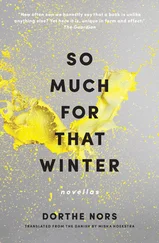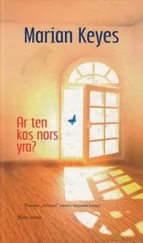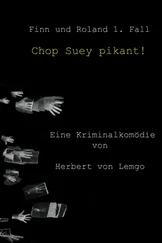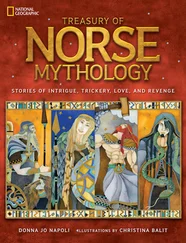Dorthe Nors - Karate Chop - Stories
Здесь есть возможность читать онлайн «Dorthe Nors - Karate Chop - Stories» весь текст электронной книги совершенно бесплатно (целиком полную версию без сокращений). В некоторых случаях можно слушать аудио, скачать через торрент в формате fb2 и присутствует краткое содержание. Год выпуска: 2014, ISBN: 2014, Издательство: Graywolf Press, Жанр: Современная проза, на английском языке. Описание произведения, (предисловие) а так же отзывы посетителей доступны на портале библиотеки ЛибКат.
- Название:Karate Chop: Stories
- Автор:
- Издательство:Graywolf Press
- Жанр:
- Год:2014
- ISBN:9781555970857
- Рейтинг книги:5 / 5. Голосов: 1
-
Избранное:Добавить в избранное
- Отзывы:
-
Ваша оценка:
- 100
- 1
- 2
- 3
- 4
- 5
Karate Chop: Stories: краткое содержание, описание и аннотация
Предлагаем к чтению аннотацию, описание, краткое содержание или предисловие (зависит от того, что написал сам автор книги «Karate Chop: Stories»). Если вы не нашли необходимую информацию о книге — напишите в комментариях, мы постараемся отыскать её.
A Public Space
Karate Chop
Karate Chop: Stories — читать онлайн бесплатно полную книгу (весь текст) целиком
Ниже представлен текст книги, разбитый по страницам. Система сохранения места последней прочитанной страницы, позволяет с удобством читать онлайн бесплатно книгу «Karate Chop: Stories», без необходимости каждый раз заново искать на чём Вы остановились. Поставьте закладку, и сможете в любой момент перейти на страницу, на которой закончили чтение.
Интервал:
Закладка:
She didn’t want him to go. He had to stay at her side. Every time he got up to stretch his legs she became uneasy. Eventually he lay down beside her.
That was when it came out. How she and Aunt Ellen had come home from school one day and Grandmother had been standing at the entrance of the cowshed. She was in Grandfather’s gray milking apron and said they were to follow her in. As soon as they passed the cows and came to the back of the shed, Grandmother opened the gate of the rabbit enclosure. She said the rabbits had gotten sick with disease. The rabbits hopped around in the straw and Grandmother chased one of the brown ones into a corner. She took hold of the scruff of its neck and pressed it against her chest to make its legs stop kicking.
“This is how it’s done,” she said, and without wanting to watch, Mother and Aunt Ellen saw Grandmother’s hand squeeze the air out of the rabbit.
It peed on the apron while it happened, and a long, thin sound came out of Aunt Ellen. Mother wanted to jump on Grandmother and make her stop. She was going to scratch her. Or else she was going to run, or maybe just scream. But she did none of those things, because Grandmother looked at her in such a strange way. Like it was a kind of experiment and the idea was to find out how much chaos she could cause inside her. The more chaos and noise she could make there, the better.
“And I just stood there all quiet. I stood there and watched as though I didn’t care, while Aunt Ellen ran away and Grandmother squeezed the life out of four more rabbits. When she was done, her hands were shaking and there was such a wild look in her eyes. She said I was to go inside and wash.”
He held his mother’s hand as she told the story. She looked at him with childlike eyes and claimed the cancer had come from that moment when in order for Grandmother not to win she had refused to be affected by the evil thing she did. He nodded, because what was he supposed to say? And then she was dead, placed inside the casket and buried, and he had packed away most of her stuff, but not all. There are still a number of boxes, the bags for the Salvation Army, and above the kitchen sink the obituary notice he reads every time he washes his hands.
SHE FREQUENTED CEMETERIES
SHE STARTED FREQUENTING CEMETERIES THAT SUMMER, PREFERRING the ones others rarely visited. She could go straight from social events with white wine, canapés, and peripheral acquaintances, cycle to the nearest cemetery, and find the corner where no one ever really went. At the far end of Vestre Cemetery, by the Inuit and the Faeroese and the war graves, down by the disused chapel was a quiet spot. Well away from the plots where brewers, publishers, and prime ministers lay shoulder to shoulder and were dead. There was no edged grass, no small ponds with specially purchased ducks. Most of all, it resembled the hinterland of Jutland, depopulated and with plywood boards across the windows, and through it all a diagonal tunnel of willow trees. No one ever went there, so that was where she liked to go. In the same way, she was fond of the Jewish cemetery and the Catholic cemetery, and, provided she chose the right times and the right spots, Assistens Cemetery could be quiet, too.
Her favorite, though, was just between Frederiksberg and Valby. It was best in the twilight. In late July the evenings were still long and the place was like an overgrown park. Walking along the paths in the cemetery she found the unkempt graves of long-forgotten painters and poets, and at the northern end she came across a section where roses grew everywhere. The bushes had grown over the stones, weeds had tangled up in them, and they were the same roses her mother had at home. Pink, with small flowers, and no one bothered to cut them back. When she got to this part of the cemetery she would stroll peacefully around the paths as if she was drawing arabesques with her feet.
She was thirty-five years old and that summer she was avoiding her girlfriends. Now and then they would call her and ask about meeting up, but she would decline whenever possible. She knew they would be troubled by her situation, and that her way of dealing with what she claimed had happened would excite them and cause them to speculate impulsively. On a few occasions she tried to explain the situation to them, but it had not been pleasant. A few of them had tried to talk her out of it, suggesting her condition was the result of loneliness or biology. One had interrogated her. Was she quite sure, was it wise, wouldn’t it be better if … All of them wanted to give her advice, even if she didn’t need any. She knew why she was going to the cemeteries, why she continued to walk back and forth, and around and about, eating ice cream and rolling rose petals between her fingers. She was waiting, and while she was waiting she was putting something behind her and trying to find a new way of looking at the future. She walked slowly and if not devoutly then at least pensively and with a sense for the little things she didn’t feel she’d noticed for years. She saw the wild cats that lived in the bushes. She saw how they drank water from the pond in the middle of the cemetery. She saw the magpie’s young and the graves that had fallen in and the gravestones that had tipped over so it looked like the dead and their monuments were about to change places. As summer passed she saw the plants grow and fade, and some evenings she would pick a few of the pink roses and take them home with her to put in a vase on the bedside table. She thought mostly about how hard it was to be allowed to believe that good would arrive and how things would be when in spite of everything it did.
What had happened wasn’t exactly spectacular. She had met a man. That was all. She loved him, and the way she loved him had made her settle into a place inside her where intangible things took on natural substance. She felt at home there and she knew that at some point she would look back on this summer as the one when she stopped holding back. Her feelings were strong and reciprocated. She sensed it, yet she knew also it would take time before they could be together. He was in mourning for things he’d lost, and his mourning was unhurried. She could see that when he looked up at her from the table. But she was all right with it, because when he looked at her she was in no doubt and could abandon herself to the hope that he would bring all the good with him when he came.
But there was no way she could explain this to her girlfriends. They demanded evidence. They wanted to know who had died, why he kept crying, and if it really wasn’t just his own fault. They wanted to know if she’d looked into him and if she knew what laying down arms involved. She mustn’t get her heart broken, they said. That was the important thing. Not to get her heart broken. And all the time they jumped from floe to floe with their dreams of disappearing into the current, losing control, abandoning themselves. Always trying to fill in the empty spaces and keep things moving in the meantime. Doing their best to avoid going home too early to their little apartments that reminded them of coffee bars and bus shelters every time they stepped through the door. Love, nothing less. That was what they wanted. That was what they craved, unconditionally. It was what they talked about when they put their arm under hers and dragged her through the parks, as though the parks were eyes in a storm that had to be sat out, and now she had found it. But she couldn’t tell them. There was no way she could share it with them, so that summer she frequented cemeteries.
She would focus on her job, including her hospitality duties, but when it was done she would get on her bike and be gone. In the early evening she would pass through the iron gates into Park Cemetery, stroll past the dead painters, the poets, and head for the place where the pink roses were. When she got there she would walk between the graves, and as she went she closed her eyes to the parts of reality the others were keeping a watch on and imagined the man, who could only be with her in spirit, lacing his fingers in hers. They would walk there in various scenarios, sometimes silently, but together. They would be walking there when he said he loved her. Things like that would be said as they walked side by side through the cemeteries in the various stages of their as-yet-uninitiated time together. She had no trouble picturing the man zigzagging in between the small plots with a child on his shoulders. She could see the man and the child leap out from among the bushes where the wild cats lived. She could feel him kiss her behind the cemetery toilets, see the child fall and hurt itself, hear the wheels of the buggy squeak. Often he would sit down on one of the benches a little farther on and pat the space beside him so she would sit there with him, and that was what she did.
Читать дальшеИнтервал:
Закладка:
Похожие книги на «Karate Chop: Stories»
Представляем Вашему вниманию похожие книги на «Karate Chop: Stories» списком для выбора. Мы отобрали схожую по названию и смыслу литературу в надежде предоставить читателям больше вариантов отыскать новые, интересные, ещё непрочитанные произведения.
Обсуждение, отзывы о книге «Karate Chop: Stories» и просто собственные мнения читателей. Оставьте ваши комментарии, напишите, что Вы думаете о произведении, его смысле или главных героях. Укажите что конкретно понравилось, а что нет, и почему Вы так считаете.












